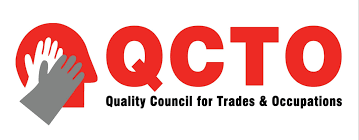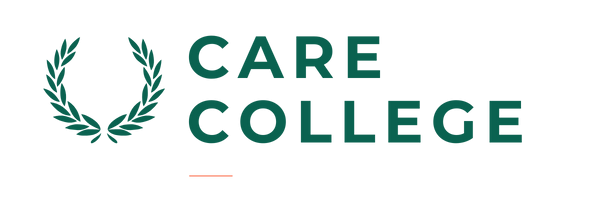Care with Confidence – Get Certified in Home-Based Care NQF 3

Why Choose Our Program?
Accredited Curriculum
Fully NQF-aligned and industry-recognized training. See our Accreditation HERE.

Face to Face Learning
In class sessions and access to our platform.
Career Support
Tailored Guidance to launch and grow your career.
Study Now - Pay Later
Ethical Student Loans. Flexible funding options that work for you.
Job Placement Opportunities
- Get a head start through our private homecare agency
- Access to top employers through our strong network for work placements and real life exposure.
What happens after submission:
- Once application is completed you’ll receive access to our 15-minute online aptitude test.
- If you pass, we’ll contact you within 2 working days to complete additional information and documents.
- Choose to proceed with a ethical student loan application (if eligible) or make your first installment/full course fee payment.
What does the course entail?
See What Our Students Say
Our Partners In Care
Frequently asked questions
Who accredits this program, and what level is it on the National Qualifications Framework (NQF)?
The program is accredited by QCTO and is at NQF Level 3, making it a recognized and valid qualification.
What topics will be covered in this qualification?
- Fundamentals of home-based care
- Community health and support
- Rehabilitative and therapeutic care
- Palliative and supportive care
- Practical caregiving skills
- Workplace-based learning and service
How long is the course duration?
To be deemed competent, you must complete a total of 1,355 notional hours, which are divided into the following:
Knowledge Modules: 450 hours (4 months)
Practical Modules: 450 hours (4 months)
Workplace Modules: 450 hours, to be completed over a 4-month period at your designated workplace. Workplace placement will begin in the 4th month of your studies. This placement is full-time and unpaid, and you are expected to treat it with the same dedication and commitment as you would a job.
We allocate an additional 2 months to help you prepare for the EISA exam. Please note that the EISA exam is held twice a year, in March and October. Depending on when you start your course, you will be scheduled to sit for the exam in the corresponding month.
Knowledge Modules: 450 hours (4 months)
Practical Modules: 450 hours (4 months)
Workplace Modules: 450 hours, to be completed over a 4-month period at your designated workplace. Workplace placement will begin in the 4th month of your studies. This placement is full-time and unpaid, and you are expected to treat it with the same dedication and commitment as you would a job.
We allocate an additional 2 months to help you prepare for the EISA exam. Please note that the EISA exam is held twice a year, in March and October. Depending on when you start your course, you will be scheduled to sit for the exam in the corresponding month.
When do I go to the workplace?
You will first complete classroom-based knowledge and practical skills modules (around 4 months), and then move on to workplace experience (about 6 months) under supervision.
How can I use this qualification to advance my career?
You can progress to:
Further studies in community health work (NQF 4), Nursing auxiliary programs, Occupational Health & Safety short courses, Palliative or dementia care specializations.
Will I receive support during my workplace experience?
Yes! You’ll be mentored and guided by supervisors, and your college will stay in contact to monitor your progress and assist when needed.
How is this qualification different from other homebased courses?
This is a QCTO-accredited occupational certificate, listed on the National Qualifications Framework (NQF) at Level 3. Most short courses or certificates from NGOs or small training centers are not registered on the NQF, and may not be recognized for formal employment or study progression.
Can I work after completing this qualification?
Absolutely. Graduates can work in private homes, community care centres, clinics, and NGOs. You may also register with homecare agencies.
Do I need to find a Workplace for My Practical Training?
Through our network, we will place you with a workplace partner to complete your required workplace hours. We aim to match you with a partner located as close as possible to your area.
What do I need to qualify for the course?
A minimum of Grade 10 (NQF Level 2) or equivalent is recommended, but Recognition of Prior Learning (RPL) may apply for those with experience.
What is the EISA exam?
The EISA exam is administered as a final evaluation of your competencies. It tests both theoretical knowledge and practical application. Passing requires a strong understanding of the course material and proficiency in applying HBC principles in real settings.
What happens if you fail the Eisa?
If you do not pass, you’ll have the opportunity for remedial support and, a chance to retake the assessment. We’re here to help ensure you succeed.
What happens if you fail the Eisa?
If you do not pass, you’ll have the opportunity for remedial support and, a chance to retake the assessment. We’re here to help ensure you succeed.
Is there a career services team that can help me with job placements after graduation?
Yes, our team provides job placement support, career guidance, and connects you with potential employers.
How do I access learning resources and support systems?
Learning resources are available through our online portal, library. You can also reach out to tutors and your community of students as needed to support you through your learning journey.
Can I study part-time or online, or is it only offered as a full-time course?
This course is only offered at full time at present.
What are the expectations for attendance participation in class?
Active participation and consistent attendance are required, to ensure effective learning. A minimum of 80% attendance is required to be deemed competent in the full qualification.
What are the expectations for attendance participation in class?
Active participation and consistent attendance are required, to ensure effective learning. A minimum of 80% attendance is required to be deemed competent in the full qualification.
Will I receive a formal certificate upon completion?
Yes, you will receive a certificate of attendence through CareChamp College and your official qualification certificate will be received by QCTO 3 months after completing your EISA.
Are there scholarships, bursaries, or student loans for this qualification?
Here’s everything you need to know about the student loans we offer to help you upskill and pursue your educational goals!
Eligibility Criteria
Who qualifies for a student loan?
Anyone can apply for a Student Loan.
Can I apply if I am blacklisted?
No, our loan partners require applicants to have a clean credit history.
Loan Features:
What can the loan be used for?
The loan is specifically for covering tuition fees for your course with us and if approved gets paid directly to the College.
How much can I borrow?
Loan amounts depend on the course you’re enrolling in and other factors determined during the application process.
What is the repayment plan?
Repayment typically begins once you secure employment after completing the course.
Flexible repayment plans will be arranged to match your income level.
Student Loan Application Process
How do I apply?
How long does the application process take?
The process generally takes 5-7 business days, depending on document verification and credit checks.
What happens if my application is denied?
If your application is not approved, we’ll guide you on alternative ways to fund your education.
Other Questions
What if I don’t get a job after completing my course?
Our loan partners provide flexible repayment terms to accommodate challenges. Additionally, our career services team is available to assist you in finding job opportunities.
Can I reapply if I am initially denied?
Yes, you may reapply once your circumstances align with the eligibility criteria.
For any additional questions or assistance with the application process, please contact us directly. We’re here to help you achieve your educational and career goals!
Eligibility Criteria
Who qualifies for a student loan?
Anyone can apply for a Student Loan.
Can I apply if I am blacklisted?
No, our loan partners require applicants to have a clean credit history.
Loan Features:
What can the loan be used for?
The loan is specifically for covering tuition fees for your course with us and if approved gets paid directly to the College.
How much can I borrow?
Loan amounts depend on the course you’re enrolling in and other factors determined during the application process.
What is the repayment plan?
Repayment typically begins once you secure employment after completing the course.
Flexible repayment plans will be arranged to match your income level.
Student Loan Application Process
How do I apply?
- Complete our initial application form.
- Submit the required documents.
- Fill out an additional application form through our loan partner.
How long does the application process take?
The process generally takes 5-7 business days, depending on document verification and credit checks.
What happens if my application is denied?
If your application is not approved, we’ll guide you on alternative ways to fund your education.
Other Questions
What if I don’t get a job after completing my course?
Our loan partners provide flexible repayment terms to accommodate challenges. Additionally, our career services team is available to assist you in finding job opportunities.
Can I reapply if I am initially denied?
Yes, you may reapply once your circumstances align with the eligibility criteria.
For any additional questions or assistance with the application process, please contact us directly. We’re here to help you achieve your educational and career goals!
Are there any additional costs for materials, books, or exams?
There are no additional costs for textbooks, practical materials, and exams as this is included in cost.
Is there a specific code of conduct or behavior policy for students?
Yes, all students must adhere to our code of conduct, which emphasizes professionalism, respect, and ethical behavior. Please read through our code of conduct here.
What are the main expenses I should include in my student budget?
Transportation:
You will be required to attend in-person classes three days per week to gain practical experience. For your workplace-based learning modules, travel may be necessary. However, we will make every effort to place you at a Workplace Partner close to your home to minimize travel costs and time.
Uniform:
Students are required to wear a standard nursing uniform, which is provided by the College and includes a name badge. This uniform is mandatory for all workplace placements. Please ensure that you have R350 available for the purchase of your uniform at the start of training.
Vaccinations:
Proof of three Hepatitis B vaccinations must be submitted by Month 5 of the training programme. This is a health and safety requirement for workplace placement.
Medical Clearance:
A valid Medical Certificate confirming TB clearance must be submitted by Month 3 of your training. This certificate should be issued by a registered healthcare provider.
You will be required to attend in-person classes three days per week to gain practical experience. For your workplace-based learning modules, travel may be necessary. However, we will make every effort to place you at a Workplace Partner close to your home to minimize travel costs and time.
Uniform:
Students are required to wear a standard nursing uniform, which is provided by the College and includes a name badge. This uniform is mandatory for all workplace placements. Please ensure that you have R350 available for the purchase of your uniform at the start of training.
Vaccinations:
Proof of three Hepatitis B vaccinations must be submitted by Month 5 of the training programme. This is a health and safety requirement for workplace placement.
Medical Clearance:
A valid Medical Certificate confirming TB clearance must be submitted by Month 3 of your training. This certificate should be issued by a registered healthcare provider.
When do your intakes take place for HBC?
Our Homebased Care (HBC) intakes take place 2 times a year, in February and September.
Meet Your Teaching Team
Sr Shiela began her nursing training in the United Kingdom and continued her studies in South Africa through Rand Afrikaans University, completing Community Care and Nursing Dynamics. She later pursued Nursing Administration through UNISA and completed a nursing upgrade at Derby University in 2008. She remains registered with the UK Nursing Council.
With a passion for innovation in care, Sr Shiela established wound care clinics in hospitals across Johannesburg and Cape Town. She currently works as a home nurse assessor for CareChamp in Cape Town, where she conducts assessments, develops care plans, performs nursing procedures, and matches clients with suitable caregivers.
Facilitator/Assessor
Sr Wilma qualified as a General Nurse, Psychiatric Nurse, Midwife, and Community Health Nurse after graduating from Nico Malan College 36 years ago. She later specialised as an Ophthalmic Nurse at Groote Schuur Hospital in 1996 and completed a Management Development Programme at the University of Stellenbosch in 2004.
Her career includes experience at leading institutions such as Groote Schuur Hospital, Vincent Pallotti Hospital, Metropolis Pathologists, and 13 years with the Western Cape Blood Service. Sr Wilma brings a wealth of clinical knowledge and a deep commitment to patient care.
Facilitator/assessor
With over seven years at Carechamp, I’ve had the privilege of growing alongside an organization committed to empowering future professionals in Early Childhood Development. My journey here has fueled my passion for education, not just as a means to qualification but as a way to ignite potential and inspire change. I’m driven by a commitment to support our students, shape meaningful programs, and create a legacy of impactful learning. It’s a privilege to lead this incredible journey and contribute to the growth of both our students and the ECD community.
Head of College

